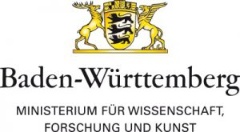

Content
Wind evolution, the process of how the turbulence eddies are evolving during travelling with the main stream, is usually described with longitudinal coherence model mathematically. The motivations to model the wind evolution are to get a better understanding of turbulence structure and to provide important information for design of lidar-assisted wind turbine control. This PhD project aims to deduce a parameterization model for the longitudinal coherence model using measurement data. The parameterization model is expected to be able to adjust the coherence model according to different wind conditions and environmental affects. Besides that, it is also expected to propose a general work flow for measurement-based model deduction. This PhD project is a part of the Graduate School WindyCities.
Organisation
Duration:
März 2018 to Februar 2021
Project coordination:
University of Stuttgart - Institut for organic chemestry - Prof Dr. Bernd Plietker
Finance:
funded by Minitry of Science, Research and Art of Baden-Würtemberg
Project partners
Hochschule für Technik Stuttgart
Hochschule Esslingen
Universität Stuttgart:
- Institut für Visualisierung und Interaktive Systeme (VIS)
- Institut für Technische Chemie
- Institut für Organische Chemie (IOC)
- Institut für Aerodynamik und Gasdynamik (IAG)
- Stuttgarter Lehrstuhl für Windenergie (SWE)
Content at SWE
1) Conduct of the lidar measurement in the campus Morgenstelle of the University of Tübingen
2) Preparation of the lidar measurement data for the project partners within the Graduate School WindyCities
3) Study of the turbulent wind field in an urban environment with measurement data
4)Parameterization of the longitudinal coherence model of wind evolution using measurement data
Contact at SWE

Po Wen Cheng
Prof. Dr.Head of Wind Energy

